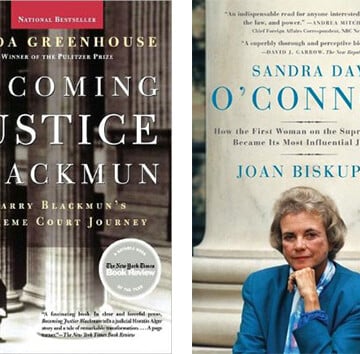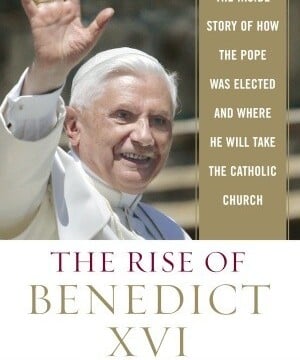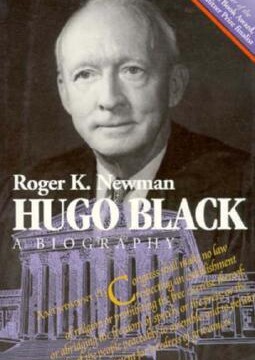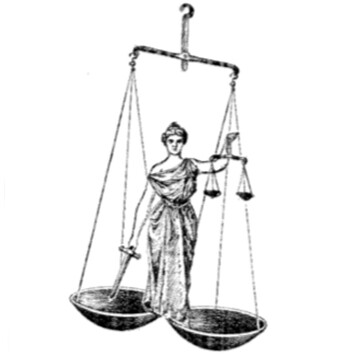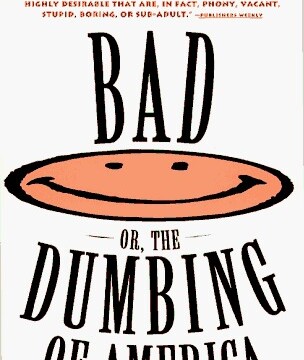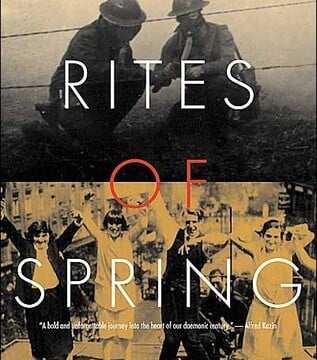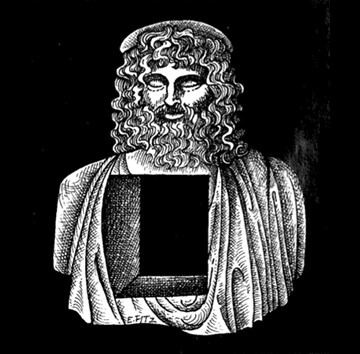Short reviews of The English Experience, by Julie Schumacher, and The Novel, Who Needs It?, by Joseph Epstein.
Author: Gregory J. Sullivan (Gregory J. Sullivan)
Guns Incorporated?
The U.S. Supreme Court has agreed to review McDonald v. City of Chicago, a case that presents the watershed issue of whether the individual right to bear arms under the Second Amendment, established in 2008 in District of Columbia v. Heller, applies to states. Most Court observers agree that it appears very likely that the...
Government by Judiciary
The two most prominent newspaper journalists covering the U.S. Supreme Court have written biographies of two of the most prominent justices of our time. Predictably, Linda Greenhouse of the New York Times, who has written Becoming Justice Blackmun: Harry Blackmun’s Supreme Court Journey, and Joan Biskupic of USA Today, who recently published Sandra Day O’Connor:...
Habemus Papam
In response to the badgering of reporters during the interregnum about whether the new pope would be a liberal or a conservative, Justin Cardinal Rigali of Philadelphia responded that the next pope will be Catholic. With the election of Joseph Cardinal Ratzinger as Pope Benedict XVI, the Church has not only a Catholic pope but...
Solomons and Caesars
Karen Finley is a “performance artist.” Her performances are succinctly described by Judge Robert Bork in his new book Slouching Towards Gomorrah: “Before an audience, [Finley] would strip to the waist, smear her body with chocolate (to represent excrement) and sprouts (sperm), and wail about what men have done to women.” According to a recent...
Our Platonic Guardians
In 1986, Justice William Brennan delivered an address in which he called for “state courts to step into the breach” left by what he discerned as a federal contraction of rights and remedies. In other words, those who wish to remake American society along radically egalitarian lines could no longer count on a sympathetic federal...
Parochial Formalism
Justice Hugo Black remains something of an anomaly in the history of the Supreme Court. A textualist who was contemptuous of the arbitrary mysticism of substantive due process, he nevertheless advocated the most extreme position on the issue of incorporating the Bill of Rights against the states through the 14th Amendment, a revolutionary doctrine that...
Five Votes
“Much law, but little justice.” —Thomas Fuller With five votes around here you can do anything,” Justice William Brennan told his law clerks, thus summarizing the quintessence of Brennanism. That constitutional law is not something derived from the text, structure, and history of the various provisions of the Constitution but rather a creation of the...
Dumb, Dumber, Dumbest
There are two—equally indispensable—Paul Fussells: one is the erudite professor of English (at the University of Pennsylvania) who is the author of such brilliant studies as The Great War and Modern Memory; the other is the scalding critic of American pretension who writes such astute books as Class: A Guide Through the American Status System....
Dionysus in the Trenches
In his masterly Ideas Have Consequences, Richard Weaver (who was fond of the long view) marked the decline of the West from the late 14th century with the development of William of Occam’s doctrine of nominalism. In the short view, though, it is obvious that the Great War was the watershed of modernity: what remained...
Objection Sustained
The interdisciplinary field of law and literature is burgeoning, and various academics are making grandiose claims. “The field envisages,” says Richard Posner, “a general confrontation or comparison, for purposes of mutual illumination, of two vast bodies of texts, and of the techniques for analyzing each body.” The pretensions of this fledgling movement, however, indicate that...
The Secular Imagination
Under the tyranny of ideology that is a grim fact of contemporary life in university English departments, it is tempting to reflect on the career of Lionel Trilling (1905-1975) with an uncritical wistfulness. It is to Stephen Tanner’s credit that his astute and balanced introductory study resists such a temptation; for however much Trilling’s criticism...
A Portrait of the Artisan as a Young Man
“Who are those hooded hordes swarming Over endless plains, stumbling in cracked earth “ —T.S. Eliot Many 20th-century literary figures have undergone such exhaustive biographical treatment that a scholar wishing to venture into well-traversed territory is compelled to proffer a startling new thesis to vindicate his labors. All too frequently, alas, the “novel” approach is...
Criticism Lite
Any reader familiar with Martin Amis’ novels—especially his most recent, Money: A Suicide Note (1984)—will not be surprised by the relentlessly contemptuous tone of The Moronic Inferno and Other Visits to America, a collection of his essays and articles on America and Americans. While Amis confesses at the outset that he “feel[s] fractionally American” (his...

